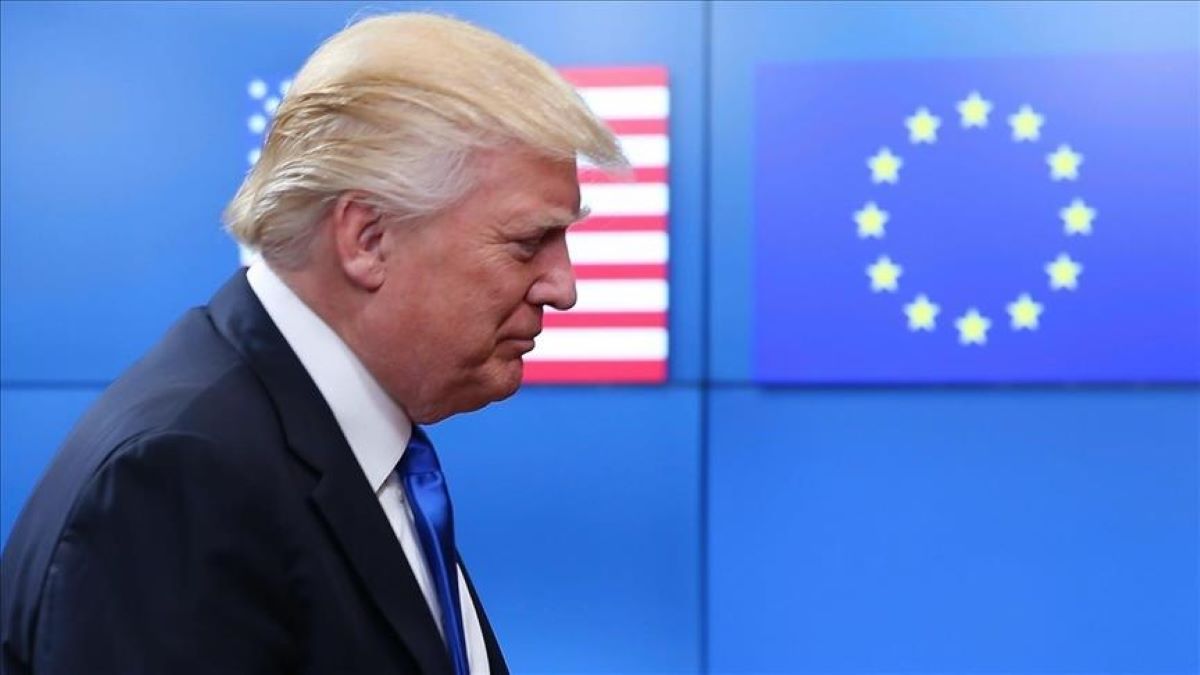EU Eyes UK-Style Trade Deal with US to Avert Tariff Hike, but Internal Divisions Threaten Progress Before Deadline
The European Union is pursuing a scaled-back trade deal with the United States—mirroring key elements of the UK’s agreement—in a bid to avert a damaging transatlantic tariff war, according to the Fina

The European Union is pursuing a scaled-back trade deal with the United States—mirroring key elements of the UK’s agreement—in a bid to avert a damaging transatlantic tariff war, according to the Financial Times. But with just weeks remaining before a self-imposed July deadline, EU officials are signaling that only a partial deal is likely, leaving several contentious tariffs unresolved.
Michael Clauss, senior adviser to German Chancellor Friedrich Merz, said he expected a political declaration rather than a comprehensive agreement. “It’s a little bit along the model of the US-UK agreement,” he said, indicating that Brussels may accept a limited deal that retains some tariffs but avoids immediate escalation.
Central to the ongoing negotiations is the issue of so-called "reciprocal tariffs," particularly the 10% duties on cars and other industrial goods. EU trade officials hope that finding a compromise here will unlock broader talks on sector-specific tariffs covering areas like steel, semiconductors, and pharmaceuticals.
While France is leading calls for a firm response to US trade pressure, others—most notably Italy and Hungary—are urging continued diplomacy. These divisions have weakened Brussels’ earlier threats of retaliation should President Trump fail to roll back tariffs imposed on EU products.
In April, the bloc had considered slapping up to 50% tariffs on €21 billion worth of American goods in response to Trump’s steel and aluminum levies—already raised from 25% to 50%. But those plans were postponed until mid-July to allow more time for negotiations.
Trump, meanwhile, has warned that without a deal, tariffs on EU goods could rise sharply—potentially reaching 200% on wine and whiskey—partly in retaliation for the EU’s earlier proposals to target iconic American products like bourbon. The US president has also floated a broader “reciprocal tariff” regime, potentially raising duties to 50% across the board.
Despite its significantly larger economic footprint compared to the UK, the EU is now increasingly open to accepting a deal similar to the one signed between the US and the UK under Prime Minister Sir Keir Starmer. That agreement preserved key UK positions—including retaining its digital services tax and VAT rules—while dropping tariffs on US beef and ethanol.
Under the US-UK deal, the UK agreed to allow up to 100,000 cars into the US at a 10% tariff, instead of the 25% import tax imposed on all car imports earlier this year. In exchange, Britain agreed to lower tariffs on US beef and ethanol. The US also eliminated tariffs on the UK aerospace industry, including parts and planes.
Diplomats say that if Brussels can secure limited tariff quotas in sensitive sectors like cars and steel—while avoiding sweeping concessions on American food standards or digital regulations—some member states would accept a 10% reciprocal duty as a pragmatic outcome.
EU Trade Commissioner Maroš Šefčovič is leading sectoral negotiations with US Commerce Secretary Howard Lutnick, while broader trade talks are being conducted between EU officials and the Office of the US Trade Representative (USTR).
Among US demands still on the table are the elimination of national digital services taxes and the removal of various “non-tariff barriers,” including bans on chlorine-washed chicken and quotas for locally produced television content. However, Washington has reportedly dropped its earlier demand for the EU to scrap its value-added tax system.
In a gesture of goodwill—and to address the €198 billion goods trade surplus it holds with the US—the EU has offered to ramp up purchases of American liquefied natural gas and defense equipment.
But if talks collapse, Brussels will require the backing of a weighted majority of EU member states to impose retaliatory tariffs. So far, all members except Hungary supported the suspended April package. Still, officials warn that without visible unity, retaliation could backfire and further embolden the Trump administration.
As the July 9 deadline approaches, the EU faces a stark choice: accept a limited deal that averts a full-blown trade war—or risk internal division and direct confrontation in an already fragile global trade environment.
Disclaimer: The views in this article are from the original Creator and do not represent the views or position of Hawk Insight. The content of the article is for reference, communication and learning only, and does not constitute investment advice. If it involves copyright issues, please contact us for deletion.